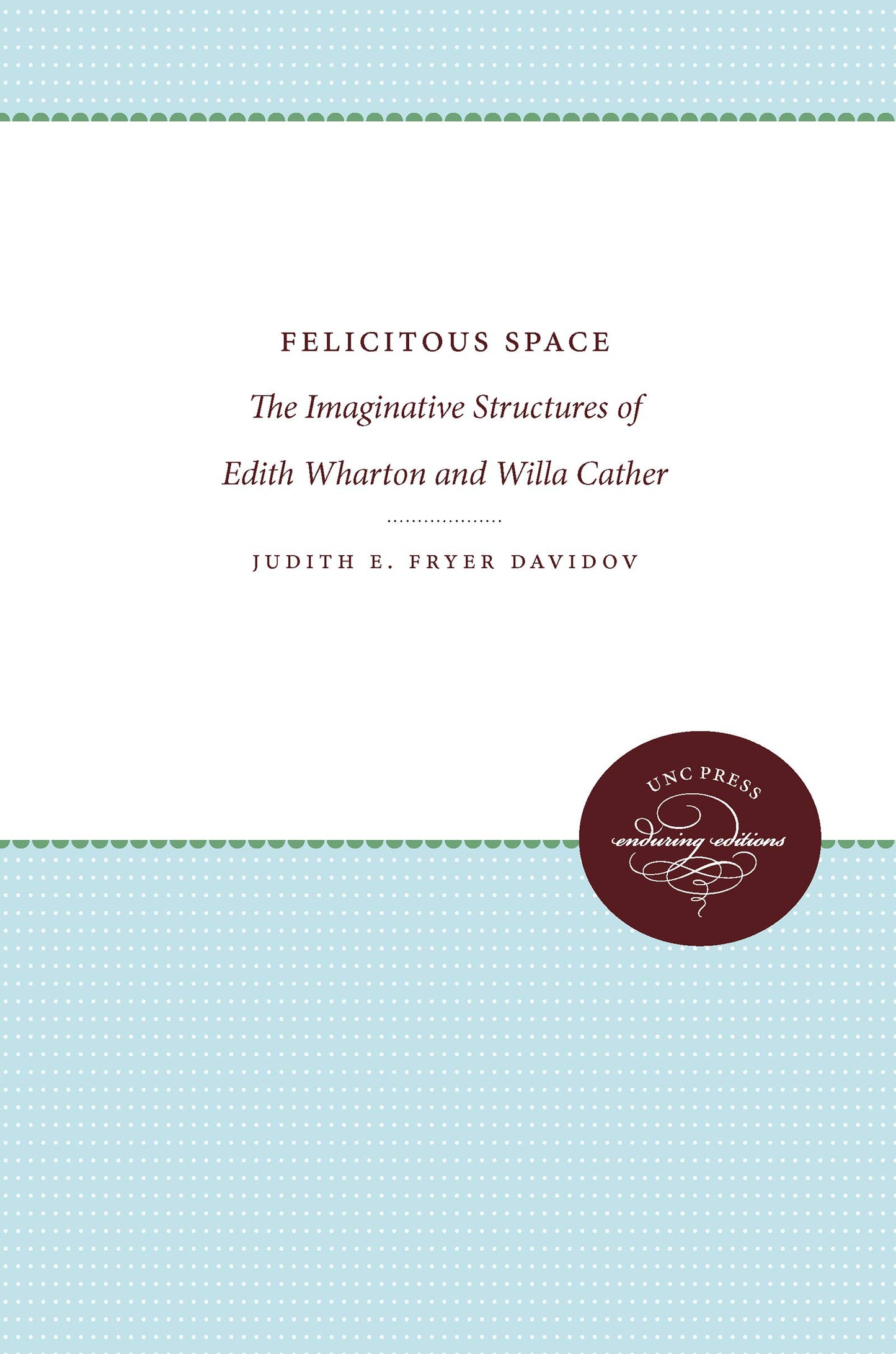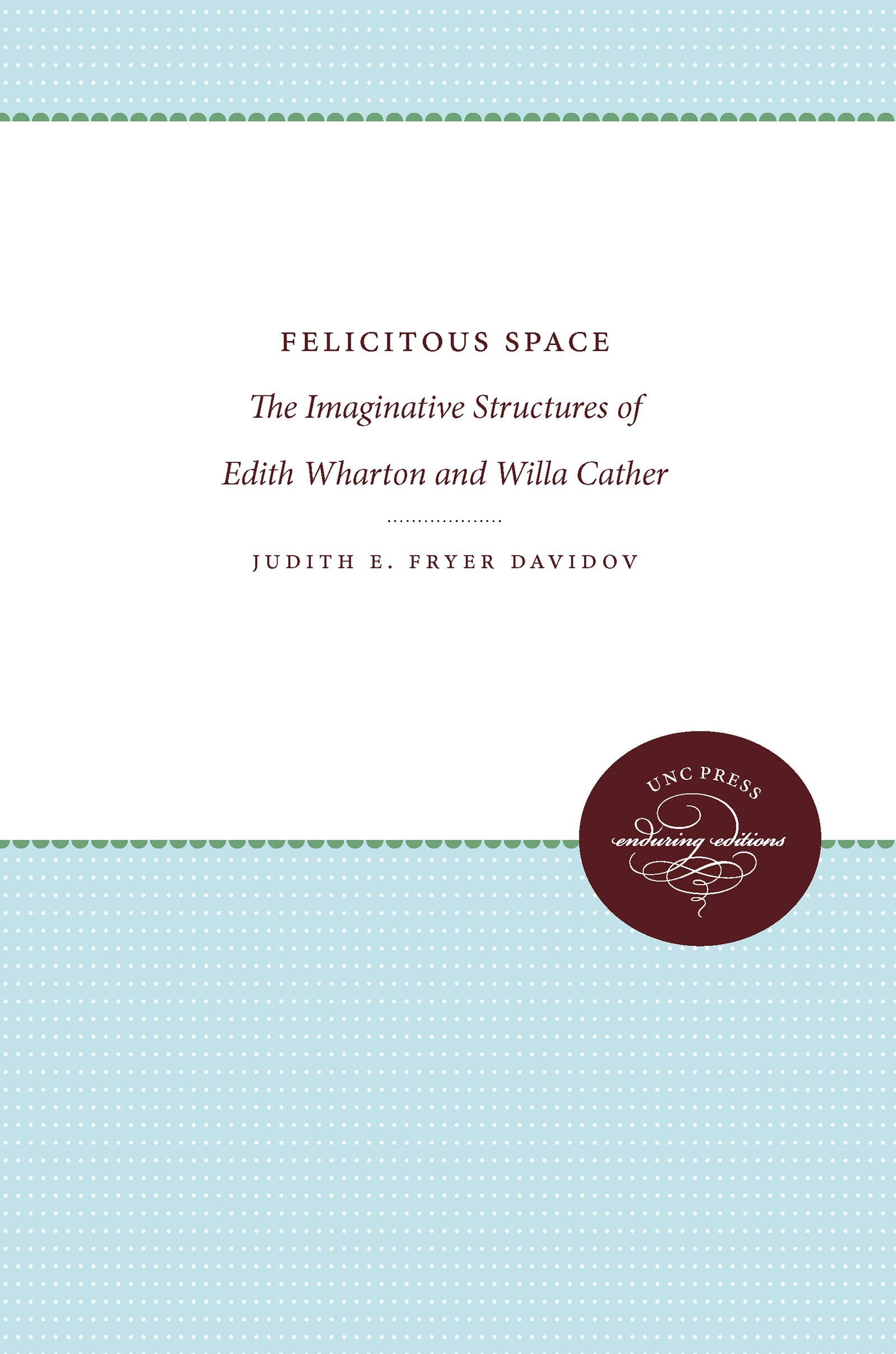Univ of North Carolina Pr
Felicitous Space: The Imaginative Structures of Edith Wharton and Willa Cather
Regular price
$7.95 USD
Regular price
Sale price
$7.95 USD
Unit price
per
Shipping calculated at checkout.
Couldn't load pickup availability
Title: Felicitous Space: The Imaginative Structures of Edith Wharton and Willa Cather
Author: Judith E Fryer Davidov
ISBN: 0807816558
Publisher: Univ of North Carolina Pr
Published: 1986
Binding: Hardcover
Language: English
Condition: Used: Near Fine
Excellent, unmarked copy with little wear and tight binding. We ship in recyclable American-made mailers. 100% money-back guarantee on all orders.
Literary Criticism 1618281
Publisher Description:
Judith Fryer's study of novelists Edith Wharton and Willa Cather is a rich examination of the actual and imagined spaces women inhabit, perceive, and create. Turning to the period of "America's coming of age," Fryer offers a woman-centered inquiry into an era whose traditional landmarks are the frontier, the rise of the city, and World War I.
Fryer draws her analysis from history, philosophy, environmental psychology, anthropology, sociology, and geography as well as from literature, architechure, and painting. The book's conceptual bonds are women's structures of the period: the Woman's Building at the World's Columbian Exposition in Chicago in 1893 and the 1915 feminist utopian community, Herland, imagined by Charlotte Perkins Gilman.
Focusing on the experience of women, Fryer presents a series of meditations that are concerned with the structures of fantasy -- a plan for a house, a room, a set of furnishings, a landscape, a story. Offering new readings of the fictions of Edith Wharton and Willa Cather that depart from existing biographical or psychological analyses, Fryer provides an original view of the meaning of space for such educated women.
Wharton and Cather departed from the customary "American" expressions of the dominant culture, Fryer argues, to explore and inscribe their own experiences. She focuses on their imaginative structures, from Wharton's meticulously conceived interiors, which include all that the eye can encompass, to Cather's unfurnished rooms and landscapes, which are her physical and spiritual correlatives. In demonstrating the relationship between the spaces women inhabit and the language of their imaginative creations, Fryer brings new meaning to the ongoing investigations of creativity versus environment.
Originally published in 1986.
A UNC Press Enduring Edition -- UNC Press Enduring Editions use the latest in digital technology to make available again books from our distinguished backlist that were previously out of print. These editions are published unaltered from the original, and are presented in affordable paperback formats, bringing readers both historical and cultural value.
Author: Judith E Fryer Davidov
ISBN: 0807816558
Publisher: Univ of North Carolina Pr
Published: 1986
Binding: Hardcover
Language: English
Condition: Used: Near Fine
Excellent, unmarked copy with little wear and tight binding. We ship in recyclable American-made mailers. 100% money-back guarantee on all orders.
Literary Criticism 1618281
Publisher Description:
Judith Fryer's study of novelists Edith Wharton and Willa Cather is a rich examination of the actual and imagined spaces women inhabit, perceive, and create. Turning to the period of "America's coming of age," Fryer offers a woman-centered inquiry into an era whose traditional landmarks are the frontier, the rise of the city, and World War I.
Fryer draws her analysis from history, philosophy, environmental psychology, anthropology, sociology, and geography as well as from literature, architechure, and painting. The book's conceptual bonds are women's structures of the period: the Woman's Building at the World's Columbian Exposition in Chicago in 1893 and the 1915 feminist utopian community, Herland, imagined by Charlotte Perkins Gilman.
Focusing on the experience of women, Fryer presents a series of meditations that are concerned with the structures of fantasy -- a plan for a house, a room, a set of furnishings, a landscape, a story. Offering new readings of the fictions of Edith Wharton and Willa Cather that depart from existing biographical or psychological analyses, Fryer provides an original view of the meaning of space for such educated women.
Wharton and Cather departed from the customary "American" expressions of the dominant culture, Fryer argues, to explore and inscribe their own experiences. She focuses on their imaginative structures, from Wharton's meticulously conceived interiors, which include all that the eye can encompass, to Cather's unfurnished rooms and landscapes, which are her physical and spiritual correlatives. In demonstrating the relationship between the spaces women inhabit and the language of their imaginative creations, Fryer brings new meaning to the ongoing investigations of creativity versus environment.
Originally published in 1986.
A UNC Press Enduring Edition -- UNC Press Enduring Editions use the latest in digital technology to make available again books from our distinguished backlist that were previously out of print. These editions are published unaltered from the original, and are presented in affordable paperback formats, bringing readers both historical and cultural value.

